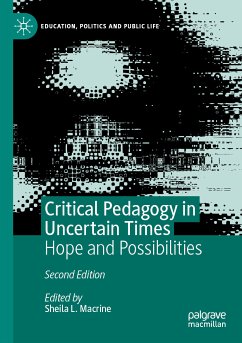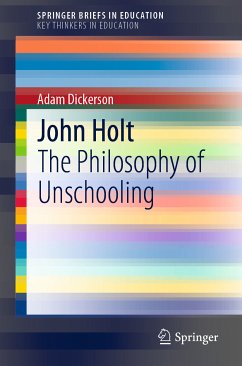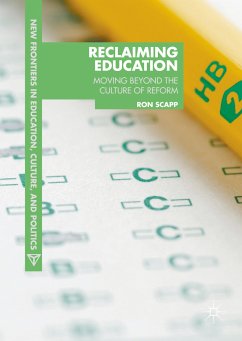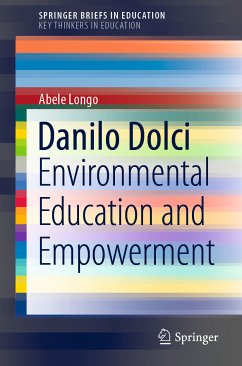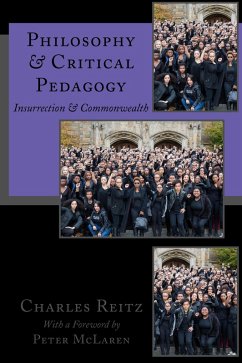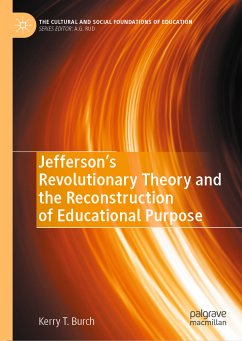
Reflections on Criticality in Educational Philosophy (eBook, PDF)
Critical Traditions, Freire and Wittgenstein
Versandkostenfrei!
Sofort per Download lieferbar
112,95 €
inkl. MwSt.
Weitere Ausgaben:

PAYBACK Punkte
56 °P sammeln!
This book navigates global educational policy concerning critical thinking skills and competencies. The author explores the concept of criticality from the perspectives of several critical traditions, and draws on the works of Paulo Freire and Ludwig Wittgenstein. The diverse and intricate ideas, methods and ways of thinking that emerge are examined in the new perspectival space of 'criticality scholarship'. Pursuing his own political and philosophical aspirations, the author endeavours to link a critical education with the promotion of democracy and social justice. Opportunities for further e...
This book navigates global educational policy concerning critical thinking skills and competencies. The author explores the concept of criticality from the perspectives of several critical traditions, and draws on the works of Paulo Freire and Ludwig Wittgenstein. The diverse and intricate ideas, methods and ways of thinking that emerge are examined in the new perspectival space of 'criticality scholarship'. Pursuing his own political and philosophical aspirations, the author endeavours to link a critical education with the promotion of democracy and social justice. Opportunities for further empirical and theoretical research are signposted. The book will be of interest to scholars in educational philosophy.
Dieser Download kann aus rechtlichen Gründen nur mit Rechnungsadresse in A, B, BG, CY, CZ, D, DK, EW, E, FIN, F, GR, HR, H, IRL, I, LT, L, LR, M, NL, PL, P, R, S, SLO, SK ausgeliefert werden.




